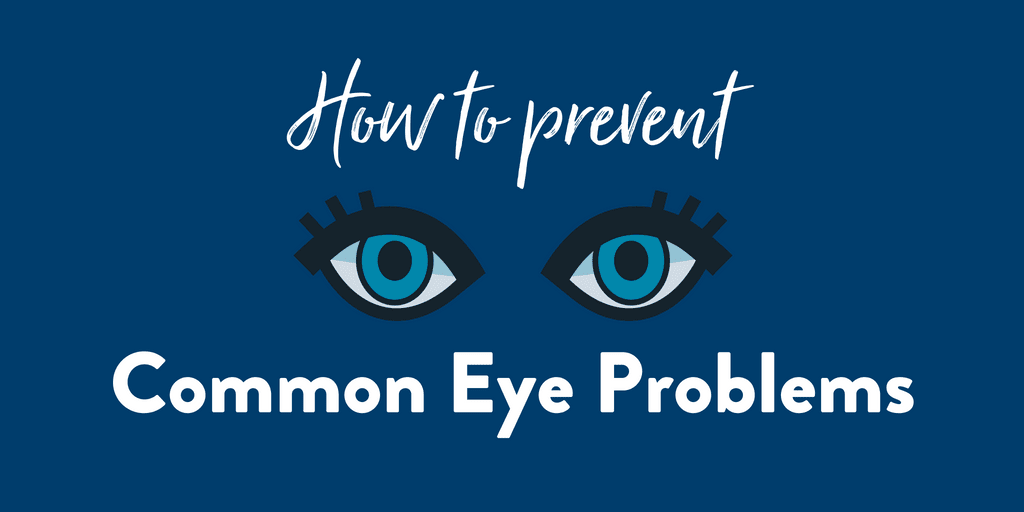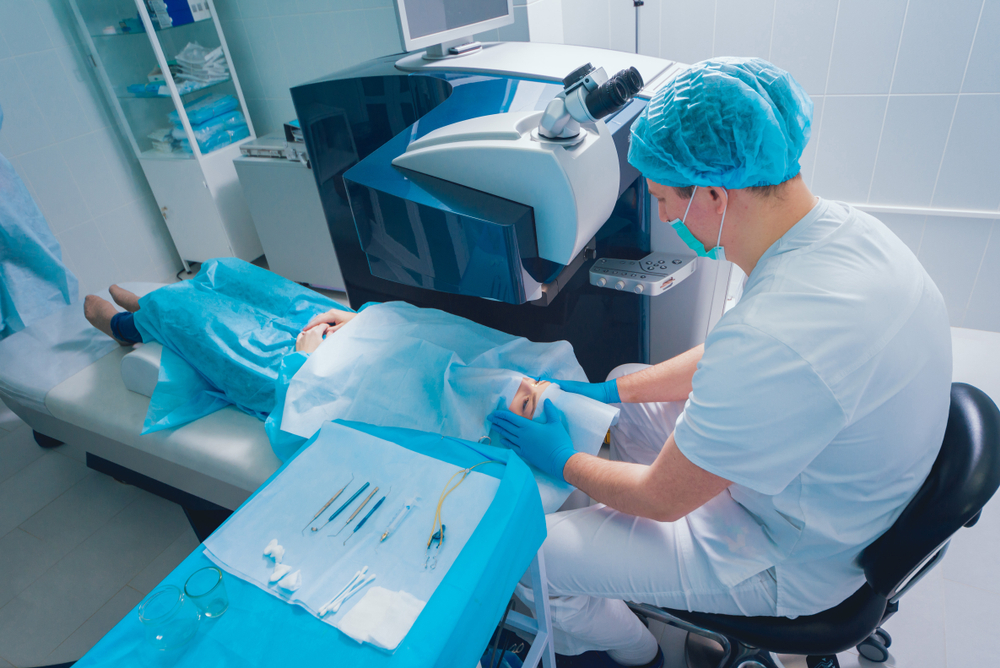

Dilated pupils are a natural and common reaction to many situations and will usually go away on their own. However, when they’re sudden, are seemingly triggered for no reason, or don’t go away on their own, there can be an underlying cause for them that could require medical attention.
Let’s discuss what dilated pupils are, what they can be caused by when you should worry about them, and what treatment options are available.
What Are Dilated Pupils?
Pupils are the part of your eye that lets light into your eyes to help you see clearly. They’re controlled by the muscles in your iris, which is the colored part of your eye. The normal pupil size for an adult varies from 2 mm to 8 mm, depending on the amount of light exposure.
Dilated pupils occur when your pupils widen. There are natural causes that can cause this, but the effects will always be temporary. If your dilated pupils linger, you should get your eyes checked to find out the underlying reason.
Natural Responses Leading to Dilated Pupils
Pupils are constantly changing in size in response to the amount of light they’re taking in.
They normally dilate in low-light conditions to let more light into the eye. They will also constrict in conditions with higher levels of light to minimize the amount of light that enters the eye.
Causes of Dilated Pupils
There are also unnatural causes that could cause your pupils to dilate. In these cases, consulting with a professional is recommended.
Medications and Drugs
A variety of medications cause dilated pupils by interfering with the muscle function in the iris that controls the pupil’s size.
Some of these medications include:
- Antihistamines, like Benadryl
- Muscle relaxants, like Lioresal
- Decongestants, like Sudafed
- Parkinson’s medications, like Symmetrel
- Antidepressants, like Norpramin
- Illicit drugs like LSD or cocaine
When checked by a healthcare professional, they can determine if the cause of your dilated pupils is a medication you’re taking.
Eye Injuries
Trauma to the brain or eye can cause dilated pupils. Typically, blunt closed trauma damages the iris sphincter muscle, or one of the pathways in the brain that controls it. These injuries can also cause bleeding inside the skull, which can make your pupils enlarge.
Eye injuries can also be caused by:
- Retinal procedures, like retinal detachment surgery, diabetic retinopathy surgery, and macular hole surgery
- Intraocular surgery, like cataract removal or a corneal transplant
Medical Conditions
Dilated pupils can also be caused by several medical conditions, such as:
- Aneurysm in the brain
- Brain tumor or abscess
- Excess pressure in one eye caused by glaucoma
- Acute stroke
- Intracranial hemorrhage
- Brain swelling
- Infection of membranes around the brain
- Increased intracranial pressure
- Intracranial tumor
- Migraine headache
- Seizure
- Tomor, moss, or lymph node in the upper chest or lymph node
- Diabetic oculomotor nerve palsy
- Horner syndrome
- Benign episodic unilateral mydriasis
- Adie’s pupil
- Congenital aniridia
When to Worry About Dilated Pupils
If you have an unexplained change in pupil size and it’s not going away, reach out to your healthcare provider. This is particularly true if they started suddenly, are recent, or happened after an injury to your head or eye.
If you have these symptoms along with dilated pupils, get medical treatment immediately:
- Eye sensitivity to light
- Blurred vision
- Double vision
- Headache
- Fever
- Loss of vision
- Eye pain
- Nausea or vomiting
- Stiff neck
Treatments for Dilated Pupils
In most cases, dilated pupils are a natural response that will go away on their own. However, if they continue to linger, a healthcare professional may recommend further treatment. The treatment can vary depending on the underlying cause of your dilated pupils.
Sunglasses
Sunglasses, particularly sunglasses with polarized lenses, can help alleviate discomfort and sensitivity to light caused by dilated pupils. They’ll reduce the amount of light entering your eyes, providing relief in environments where bright lights exacerbate your sensitivity to light.
Rehabilitation
Rehabilitation can be used as a treatment if the abuse of substances is the underlying cause of your dilated pupils.
Treatment programs for substance abuse typically involve:
- Medication
- Counseling
- Therapy
- Support groups
These programs are utilized to reduce your dependence on the substances that are causing your pupil dilation.
Contact Lenses
Prosthetic contact lenses are specialized lenses that are used to manage eye conditions that cause issues in the appearance of your eyes. For dilated pupils, they are used to cosmetically address pupil size unevenness or irregularities. These lenses are custom-made to match the appearance of your natural eyes and help improve the symmetry and aesthetics of your eyes when there are visible discrepancies in your pupils.
Surgery
Though uncommon, surgery can be used as a treatment for dilated pupils when the underlying cause requires surgical intervention.
These circumstances could include:
- Eye Trauma: Severe eye injuries that affect the muscles controlling your pupils’ size and response may require surgical intervention to restore your normal pupil function.
- Nerve Damage: Conditions like a third nerve palsy, where the nerve controlling the pupil’s movement is affected, may require surgical repair to address the underlying cause or to correct the muscle or nerve function.
- Certain Eye Disorders: In rare cases, specific eye disorders that cause abnormal pupil dilatation could require surgical management or treatment to address the issue.
Act Now on Pupil Changes for Optimal Eye Health
If you have dilated pupils that have no explanation, don’t hesitate to reach out to our reliable team at Specialty Eye Institute. We offer comprehensive eye care that can find out the underlying cause, as well as the best way to treat them.
We are committed to offering exceptional service and treatment every time you come in. At Specialty Eye Institute, we pride ourselves on following our four core values:
- Patient-Centered Advocate
- Excellence
- Integrity
- Compassion
Call Us Today or schedule an appointment on our website.
 877-852-8463
877-852-8463
























